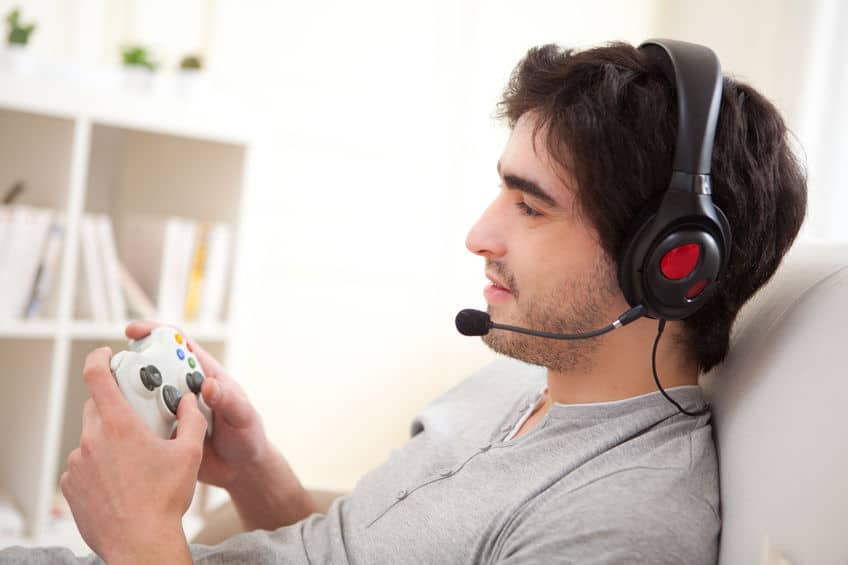
Gaming Disorder to be Recognized as a Mental Health Condition in Teens
February 1, 2018
Technology has brought convenience, strong computing power, and handy applications to society at large. Even underdeveloped, third-world countries have access, though in limited amounts, to mobile phones, computers, and other technological devices.
Video games, available on desktops, laptops, tablets, mobile phones, and specialized gaming consoles – pretty much every technological device – offer people a means of recreation, way to communicate with friends, and, at worst, an effective vessel of passing time.
While video games might seem harmless on the surface, they can effectively create addictions in teens – your very own children – genetically prone to addiction, those with few other enjoyable activities, and even individuals with budding social lives and great parents.
In 2018, the World Health Organization will officially name video gaming disorder as a legitimate, recognized mental health disorder. Here’s how to recognize such a condition in your teen – its potential effects are likely more damaging than you think.
Statistics Regarding Teen Video Gaming Disorder
While teen gaming disorder has not been thoroughly studied yet, there’s no denying its place in the proverbial club of legitimate mental health issues. However, some statistics vary in their findings. Keep in mind that the following statistics are accurate, although not as conclusive as, for example, anxiety, depression, and other long-recognized, extensively-studied mental health conditions.
- A study of 3,034 adolescent and teenaged gamers found that roughly nine percent displayed symptoms of video gaming disorder.
- Of those 3,034 participants, four percent were such serious gamers that they were considered “extreme” gamers.
- The University of Oxford, one of the world’s most prestigious universities, conducted a video gaming disorder-related study by surveying 20,000-odd people. Participants were given a list of symptoms associated with gaming addiction, of which 3 percent reported experiencing at least five in their gaming careers.
- About 100 individuals reported feeling significantly distressed in relation to not being able to slow down on their gaming.
- A study carried out at Iowa State University found an alarming 8.5 percent of American gamers studied showed at least one indicative symptom of behavioral addiction in regards to their overuse of video games.
It’s important to note that most adverse symptoms related to video gaming disorder manifest themselves mentally, although some rear their ugly heads in the form of physical manifestations.
Physical Symptoms Often Associated With Video Gaming Disorder
Hand Cramping Or Spasms
Simply laying off of gaming for a few days is an effective means of mitigating, if not completely eliminating, hand cramping. It’s typically not severe, and your teen could stomach the condition for extended periods of time.
Mild To Intense Headaches
Headaches are associated with focusing one’s eyesight on digital screens for too long without breaks, typically starting around the two-hour mark. However, not every video-gaming teen will experience headaches.
Carpal Tunnel Syndrome
Every functioning human has multiple tendons running through their forearms, including the median nerve, a large nerve that regulates the sensation of touch and movement in all fingers but the fifth digit – the pinky finger.
Carpal tunnel syndrome is characterized by the median nerve experiencing unusual levels of pressure. This is oftentimes a serious condition, and is characterized by numbness, tingling, pain, stiffness, and general lack of motion. If your teen gamed herself to this painful condition, you’ll definitely know about it.
Inadequate Personal Hygiene
If your teen has always struggled with maintaining good personal hygiene, this common manifestation of all addictions – not just video gaming – might not have video gaming disorder at its root.
Although social isolation may be totally unrelated, your teen’s friends may stop hanging out with her due to poor hygiene stemming from a severe preoccupation with video gaming.
Mental Health Issues Related To Excessive Gaming
Depression
Depression is a common side effect of gaming disorder in teens. It typically manifests itself in teens as lowered academic achievement, less interest in formerly enjoyable activities, and experiencing negative emotion when not gaming.
Restlessness
When gamers aren’t actively playing video games, they typically experience anxiety as a result. Anxiety and restlessness share deeply similar symptoms, although restlessness typically involves more full-body movements than anxiety.
Overcoming any addiction, even if it’s “just” video gaming disorder, is challenging. If your child exhibits any of the above symptoms due to excessive gaming, facilitating appointments between your teen and a mental health professional at Hillcrest Adolescent Treatment Center would unarguably help.
http://www.ox.ac.uk/news/2016-11-04-what-percentage-people-who-play-video-games-are-addicted
https://study.com/academy/lesson/video-game-addiction-treatment-symptoms-statistics.html
